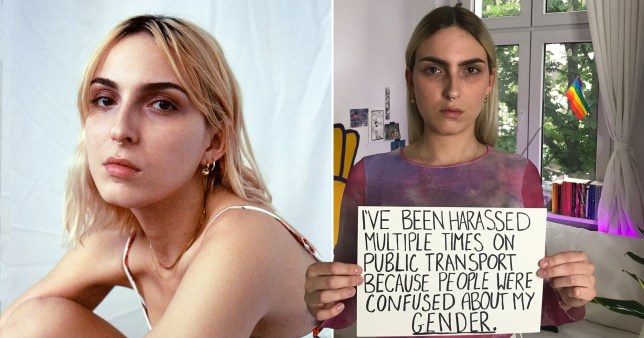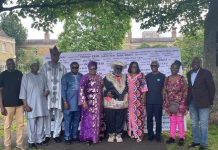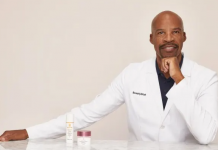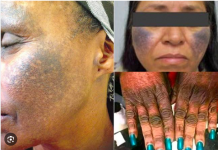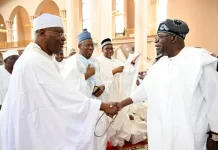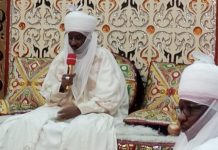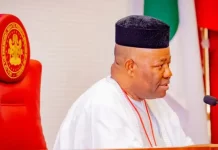As her friends moaned about getting their first periods, Dani Coyle, from Swindon, was left puzzled. While she had developed horrendous stomach cramps, her period never arrived.
The teenager went to her GP and was referred to specialists, who diagnosed Dani as intersex at the age of 14. Being intersex means that Dani has biological features that don’t neatly fit into our definitions of ‘male’ or ‘female’ – in her case, she was born without a womb and had testicles inside her stomach.
Dani was diagnosed with 17 beta-hydroxysteroid dehydrogenase three deficiency, meaning she didn’t have the hormones required to create the traditional markers of female puberty, such as menstruation.
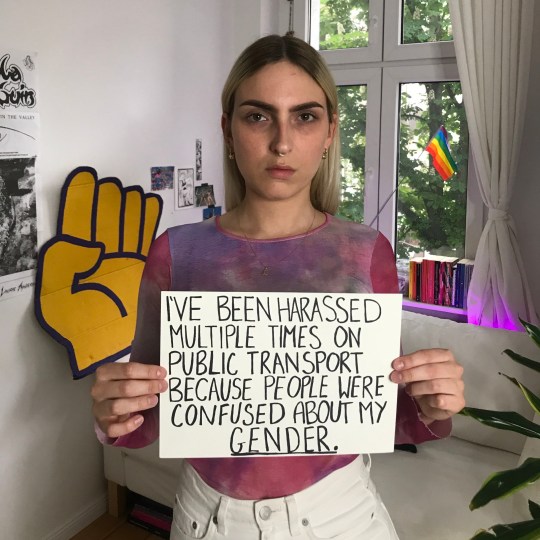
(Picture: MDWfeatures / @inter_sexy)
She was told she ‘should have’ been born as a cisgender boy due to her hormonal makeup and absence of female reproductive organs. Dani was lucky to have had this caught by doctors, as it turned out the testicles in her stomach were in the early stages of cancer.
But doctors then told the teenager they could ‘normalise’ what they saw as a ‘medical defect’ through surgery and hormone replacement surgery – something Dani believes was incorrectly presented as her only option.
In 2009, her testicles were removed, and Dani underwent surgery to alter the appearance of her vulva. The discovery that she was intersex not only prompted Dani to get surgery and left her confused and lonely, but also revealed to her that intersex bodies still aren’t accepted by society.

(Picture: MDWfeatures / @inter_sexy)
At school, Dani began to experience transphobic comments due to a lack of understanding on what it means to be intersex, leaving her ‘devastated’. ‘When I was told that I’m intersex, in truth, I was devastated although not surprised,’ said Dani, who uses both she/her and they/them pronouns.
‘I’d wished for words to explain and understand my differences for a long time. I was relieved – but scared – to finally have them. ‘When I was ten, I noticed things changing in my body that were more typical of what happens in male development.
My voice lowered in tone and my period never came. It was an extremely confusing and lonely time. ‘My body didn’t respond “normally” to the testosterone my testes produced which is why I was born, looked like, and was raised as a girl – which is lucky as I’ve always identified as female.
‘I was scared no one was going to love me when I found out. I was angry at the odds – why me? ‘I was told and believed it to be a secret that no one needed to know so I quickly underwent the surgery to remove my testes and normalise my external appearance – just as the doctors and surgeons recommended. ‘I also had hormone replacement therapy – which is essentially a menopause oestrogen pill – and I thought I’d be back to being a normal girl.
‘Now, I feel like these surgeries were presented as the only viable option – like I was robbed by biased doctors who work within a biased system which has caused an immeasurable amount of mental trauma.’
Now 25, Dani shares her story on Instagram and beyond to raise awareness around intersex surgery.
Story of Dani Coyle culled from the Metro UK News.

